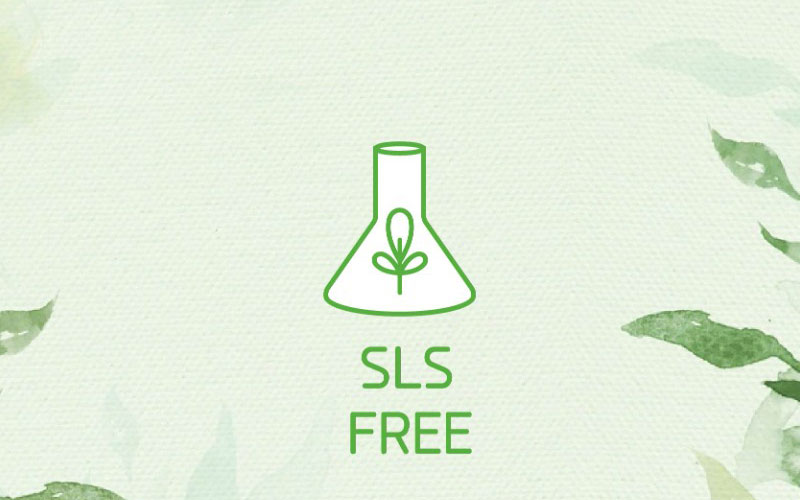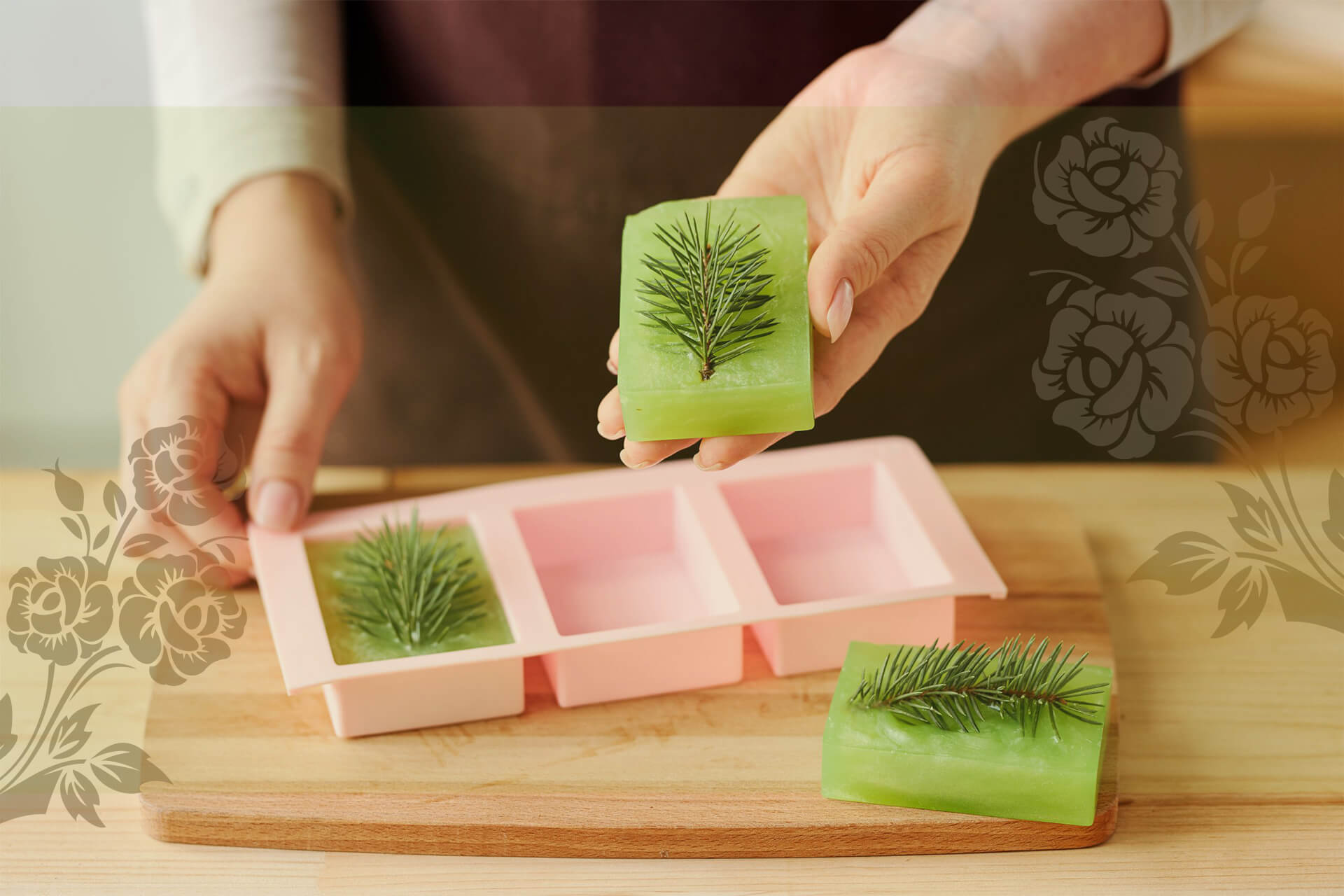Everyone is worried about SLS and SLES – Are you?
In today’s market, most soap products hold a component known as SLS and SLES. What are these terms? Its Sodium Lauryl Sulfate (SLS) or Sodium Laureth Sulfate (SLES).
What exactly is SLS?
These are hard synthetic and foaming agent that oxidizes to clean. Companies use SLS and SLES to produce a rich lather, and use it for their intense cleaning properties. Also, used for laundry detergents, spray cleaners, carpet shampoo, surface cleaners and dishwasher detergents.
SLS can be derived synthetically or natural. This chemical is produced by reacting lauryl alcohol from a petroleum or plant source with sulfur trioxide to generate hydrogen lauryl sulfate, which is then neutralized with sodium carbonate to produce SLS.5
SLS is also known as
- Sodium Dodecyl Sulphate
- Sodium Monolauryl Sulphate
- Sodium Salt
- Hydrogen Sulphate
- Sodium Dodecanesulphate
Both SLS and SLES are foaming agents, which means they produce a lot of foam or bubbles. Both are used in bathroom products designed to produce lots of foam, including shaving foam and bubble baths.
What do researchers say about SLS?
Scholars from Germany confirmed 1,600 patients for SLS irritation from that 42% of the patients tested had an irritant allergy.
In another study, a test performed on seven volunteers over a three-and-a-half-month period, observed continuous contact resulted in irritation, and the irritation diminished as soon as the skin was no longer in contact with SLS. This is one reason for eczema and other sensitive skin disorders.
Another study observed that the warmer the water comes in contact with SLS, the more irritating it will be.
Ref link – https://www.sciencealert.com/this-common-soap-and-toothpaste-chemical-can-be-a-skin-irritant
Sodium and Ammonium Lauryl Sulfate are anionic substances used in cosmetics as cleansing agents. In human studies, Sodium Lauryl Sulfate had a corrosive effect on the cell membranes as it has protein denaturing characteristics. Low levels of skin penetration may occur due to prolonged usage.
In acute ophthalmic examinations, 10% Sodium Lauryl Sulfate resulted in corneal damage to the rabbits’ eyes if not irrigated, or if irrigation was postponed.
Acute animal skin irritation studies of 0.5%-10% Sodium Lauryl Sulfate resulted in slight to moderate irritation. Applications of 10%-30% detergent caused skin corrosion and higher irritation. Solutions of 2%, 10%, and 20% Ammonium Lauryl Sulfate were highly irritating and hazardous. 1% and 5% Sodium Lauryl Sulfate produced a substantial number of comedones when smeared on the pinna (the outer ear) of albino rabbits.
REFERENCES
(1) European Journal of Dermatology, September-October 2001, pages 416-419; American Jour nal of Contact Dermatitis, March 2001, pages 28–32
(2) Journal of the American College of Toxicology, Volume 2, Number 7, pp. 127-181, 1983
But will they Impair you or the Environment?
Soaps are manufactured for a variety of purposes. It is used for personal, commercial and industrial purposes. Soaps are made for washing clothes, dishes, and cars. It also can be used for your pet, carpet and soap for your dear child.
But be alert to what’s in your soap or shampoo. And it will be a surprise that it contains all harsh chemicals causing dreadful health and environmental risks.
Dermal toxicity studies demonstrate that 24-hour exposure to a 1–2% (w/w) solution of SLS can increase the transepidermal water loss of the stratum corneum – the outermost layer of the skin – and cause mild yet reversible skin inflammation.
Ref – https://www.ncbi.nlm.nih.gov/pmc/articles/PMC4651417/
We earnestly want to make you aware of SLS and SLES’s harm to us.
-
It isn’t good for your skin
It is used in most soaps, shampoos and cosmetic products that irritate, excessive rate of water loss resulting in skin irritation and is believed to trigger skin ailments like eczema and psoriasis. It is a myth that good cleaning needs a lot of foam which is nicely produced by SLS and SLES being an exclusive feature. Disagreeing with this belief, lathering is not equal to good cleaning.
The greatest danger of using products with SLS and SLES causes inflammation of your eyes, skin, mouth, and lungs. Sulfates may also clog pores and cause acne for people with sensitive skin. Moreover, if there is dandruff, dermatitis, canker sores, or other burning tissues or skin, it could be because of SLS.
A few products may have a lower concentration of SLS or SLES. But the long exposure of the products to your skin or eyes the risk of irritation increases. Prolonged use can also cause lungs disorders.
-
Harmful to Eyes
SLS is referred to as causing severe damage to the eyes. Strong solutions of SLS left in the eyes for more than 10 seconds can result in red and swollen eyes and even lead to temporary corneal opacity. These claims classically point to a study issued by Green et al.14 in the journal Lens and Eye Toxicity Research. The research concludes the occurrence of physical or chemical damage to the eye, and corneal exposure to a high concentration of SLS slow down the healing process.
-
Not Good for the Hair
It discharges toxic gases when heated. Toxic sodium oxides and sulfur oxides are emitted when SLS come in contact with high temperature. A hot shower with an SLS shampoo is hazardous for hair casing hair damage and intensive hair loss.
-
SLS Attracts Harmful Chemicals to our Body
SLS is an absorbing chemical, which means it shrinks your skin’s resistance and increases its capacity of absorbing harmful chemicals. Therefore, SLS makes your body’s cells weaker to other toxic chemicals causing skin issues.
-
Emits Toxins When Heated
Deadly Sodium Oxide and Sulfur Oxide get exposed when SLS is heated. A very important point to consider next time you take a hot water shower or bath.
-
Unsafe for the Environment
Palm oil is debatable because of the destruction caused to tropical rainforests by palm tree farms. SLS and SLES are often extracted from palm oil, and no company can claim that their palm oil is viable. The damage that palm oil manufacturing is causing to the planet is devastating. Because of this, eco-conscious customers wish to avoid these ingredients.
For this reason, the majority of the people and manufacturers go for more environmentally friendly substitutes.
-
Testing on Animals
Products containing sulfates get washed down the drain and the toxic substances reach our groundwater and pollute it. It is poisonous to aquatic animals and can get collected in their bodies thereby killing them.
Should you go Sulfate-Free?
Additives, stabilizers, aromatic agents and synthetic colouring all have adverse effects on the body and the eco-system.
You know that sulfate products cause damage and if want to get rid of skin irritation then look for products that do not contain sulfate ingredients.
How Natural Soaps are made Without Chemicals?
Natural soaps do not contain this harmful SLS- it’s corrosive. Soap is manufactured through the process of saponification. Caustic soda is used for saponification and is a vital component in soap-making. Flakes or beads of caustic soda produce a natural reaction and get mixed with oils, fats and butter to turn the oils into salts forming a lye solution. This is how lather is formed naturally in soaps without any chemicals and is safe to use.
Natural Substitutes other than Sulfates:
Protect yourself from SLS
- For cleaning skin and hair: Go for solid and oil-based soaps and shampoos instead of harmful liquid. Some products include red clay soap, African black soap, herbs infused shampoo bar and herbal cleansing oils. Lather and foam do not help for clean skin or hair – sulfate-free products can also give flawless skin and hair.
- Use products as natural cleansers made from fruits and vegetables.
- Use products made of coconut oil, Tea tree oil, Tulsi, Cedarwood, Eucalyptus oil, products made from citrus, Organic Rosemary Oil, Aloe Vera soaps, handmade Multani Mitti soaps, etc. mainly from natural sources.
Why Use Jeveos?
Your skin is worthy of better skin care.
At Jeveos, we prohibit using of SLS or SLES or Paraben in any of the products. All our products are 100% natural, handmade, and 100% vegan. Caustic soda is the lye used in all our products, which is an important ingredient for saponification. No other substances can be used in place of caustic soda. Caustic soda causes natural chemical reactions called saponification when comes in contact with oils and fatty acids to make soaps. After drying for 4-6 weeks the pure caustic soda presence in the soaps goes below 0.01%.
Natural products at Jeveos are made of natural oils like olive oils, coconut oils, castor oils, caustic soda, natural coloring and natural aroma.
Benefits of using natural products from Jeveos
No Harmful Chemicals
Natural soaps don’t contain any synthetic chemicals. With Jeveos you get natural soap containing essential oils for aromas rather than artificial essence. We also have 100% chemical-free African Black Soap as per the customer’s preferences of NO CAUSTIC usage.
Gentle & Moisturizing
Our products are gentler on the skin than common soaps found in the market. Our products contain no drying chemicals such as sodium lauryl sulphate (SLS) damages our natural grease and causes excessive dehydration. This causes dryness of the skin. Jeveos natural products contain coconut oil, tea tree oils, lavender oil, herbal ingredients, etc. that moisturizes the skin giving a flawless result.
Environmentally Friendly
We practice green earth and thus, always aim towards preserving our nature being 100% vegan and palm-free. By using a natural ingredient, we are preventing lots of chemicals from entering the environment.
Natural soap at Jeveos has many advantages counting moisturizing the skin, being gentler on the skin, being chemical-free and holding higher quality ingredients than other products.
100% Chemical-Free Products
At Jeveos, you get 100% chemical-free products for health-conscious consumers on their special requests. African Black Soap is 100% natural without any chemicals made on customer preferences.
Conclusion
When all’s said and done, sulfates are not at all good for your skin or hair. Try using sulfate-free products for a week to check the difference and help minimize the risk of irritation.
With this, you can save your environment and reduce animals testing.
Jeveos strive to save nature and give the best Personal Care and Beauty Products at an affordable cost to our consumers. Our featured products are
Tell us your requirements. Please visit our website https://www.jeveos.com/ for more products.


